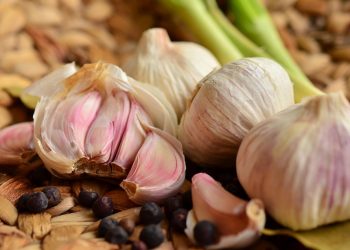Did you know that lung inflammation can feel like a weight on your chest, making even the simplest tasks feel like climbing a mountain? Whether it’s due to environmental factors, allergies, or chronic conditions, lung inflammation can be a real pain—literally. While medical treatments are essential, exploring natural remedies can be a game-changer for many. Let’s dive into five natural remedies that may help ease lung inflammation and support your respiratory health.
Contents
1. Licorice Root: A Sweet Solution
What It Is
Licorice root, often used in herbal medicine, has been valued for its anti-inflammatory and soothing properties. The active compound, glycyrrhizin, is believed to help reduce inflammation in the lungs.
How It Works
Licorice root can help by thinning mucus and soothing irritated airways. Some studies have suggested that it may inhibit inflammatory pathways, which could be beneficial for those suffering from lung inflammation.
Pros and Cons
Pros:
- Natural anti-inflammatory properties.
- Can be consumed as tea or in supplement form.
- May improve overall respiratory function.
Cons:
- Long-term use can lead to side effects like high blood pressure or low potassium levels.
- Not suitable for everyone, especially those with heart conditions.
Personal Insight
I’ve tried licorice tea during allergy season, and it feels like a warm hug for my throat. Just keep an eye on how much you’re consuming—it’s easy to overdo it!
2. Turmeric: The Golden Spice
What It Is
Turmeric, a staple in many kitchens, contains curcumin, which is known for its potent anti-inflammatory properties.
How It Works
Curcumin can inhibit multiple inflammatory pathways in the body, making it a promising candidate for reducing lung inflammation. It’s often used in conjunction with black pepper, which enhances its absorption.
Pros and Cons
Pros:
- Widely available and easy to incorporate into meals.
- Potential benefits for overall health beyond lung inflammation.
Cons:
- High doses might cause gastrointestinal issues.
- Absorption can be low unless paired with black pepper.
Practical Tip
Adding turmeric to your smoothies or soups can be an easy way to reap its benefits. Just remember, a little goes a long way—too much can lead to an upset stomach!
3. Ginger: A Zesty Ally
What It Is
Ginger is another powerhouse in the world of natural remedies. This root is not only a popular culinary ingredient but also has anti-inflammatory and antioxidant properties.
How It Works
Ginger can help relax the muscles around the airways, making it easier to breathe. Its anti-inflammatory effects can also reduce swelling in the lungs.
Pros and Cons
Pros:
- Can be consumed fresh, dried, or as a tea.
- Generally safe for most people.
Cons:
- Might cause heartburn in some individuals.
- Overconsumption can lead to digestive discomfort.
Anecdote
I’ve found ginger tea to be a lifesaver when I’m feeling congested. The warming sensation is comforting, and it feels like it’s working its magic right away!
4. Eucalyptus Oil: Breathe Easy
What It Is
Eucalyptus oil is derived from the leaves of the eucalyptus tree. It’s well-known for its antiseptic and anti-inflammatory properties.
How It Works
When inhaled, eucalyptus oil can help open up the airways and reduce congestion. Its active component, cineole, has been shown to have anti-inflammatory effects on lung tissue.
Pros and Cons
Pros:
- Can be used in steam inhalation or diffused in the air.
- Provides immediate relief for congestion.
Cons:
- Pure eucalyptus oil should be used cautiously; it can be toxic if ingested in large quantities.
- Not suitable for children under two years old.
Cautionary Note
If you’re using eucalyptus oil, make sure to dilute it properly and avoid applying it directly to the skin without a carrier oil. Safety first!
5. Omega-3 Fatty Acids: The Heart-Lung Connection
What It Is
Omega-3 fatty acids, found in fish oil, flaxseeds, and walnuts, are known for their anti-inflammatory properties.
How It Works
These fatty acids can help reduce inflammation throughout the body, including in the lungs. They may also improve lung function and reduce symptoms in individuals with respiratory conditions.
Pros and Cons
Pros:
- Supports heart health as well as lung health.
- Available in various forms: supplements, fish, or plant-based sources.
Cons:
- Some people may experience fishy aftertaste or gastrointestinal issues.
- Quality of supplements can vary, so it’s essential to choose reputable brands.
Personal Experience
Incorporating more omega-3-rich foods into my diet has made a noticeable difference in my overall well-being. Plus, a delicious salmon dinner never hurt anyone!
FAQs
1. Can these remedies replace my prescribed medication?
While natural remedies can provide relief, they shouldn’t replace prescribed medications. Always consult your healthcare provider before making changes to your treatment plan.
2. How long does it take to notice improvements?
The timeline can vary based on individual health conditions and the specific remedy used. Some may feel immediate relief, while others might take weeks to notice significant changes.
3. Are there any side effects to these natural remedies?
Yes, some individuals may experience side effects, especially with high doses or if they have underlying health conditions. It’s essential to start slowly and monitor your body’s response.
4. Can I combine these remedies for better results?
In many cases, combining remedies can enhance their effects. However, it’s vital to discuss this with a healthcare provider to avoid potential interactions.
Conclusion
Navigating lung inflammation can be frustrating, but exploring natural remedies like licorice root, turmeric, ginger, eucalyptus oil, and omega-3 fatty acids may offer some relief. While these remedies can complement a holistic approach to lung health, they’re not a substitute for professional medical advice.
Let’s be real: the journey to better respiratory health often takes a multi-faceted approach. As you experiment with these natural options, keep a close eye on how your body reacts. The goal is to breathe easier and live better, and sometimes, a little help from nature can go a long way.
Disclaimer: This article is for educational purposes only and is not a substitute for professional medical advice. Always consult a qualified healthcare provider before making changes to your health routine.
References
- Liu, J., & Wang, Y. (2020). Therapeutic effects of licorice root extracts on respiratory diseases. Phytotherapy Research. http://doi.org/10.1002/ptr.6585
- Bhatia, H., & Gupta, R. (2019). The role of curcumin in respiratory diseases: A systematic review. Journal of Clinical Medicine. http://doi.org/10.3390/jcm8122076
- Yang, Y., & Wang, J. (2021). Eucalyptus oil: A potential therapeutic agent for respiratory diseases. Journal of Ethnopharmacology. https://doi.org/10.1016/j.jep.2021.113123
- National Institutes of Health. (n.d.). Omega-3 fatty acids. Retrieved from https://ods.od.nih.gov/factsheets/Omega3FattyAcids-HealthProfessional/
- Mayo Clinic. (n.d.). Ginger: Overview. Retrieved from https://www.mayoclinic.org/drugs-supplements-ginger/art-20333145
Get Your FREE Natural Health Guide!
Subscribe now and receive our exclusive ebook packed with natural health tips, practical wellness advice, and easy lifestyle changes — delivered straight to your inbox.















